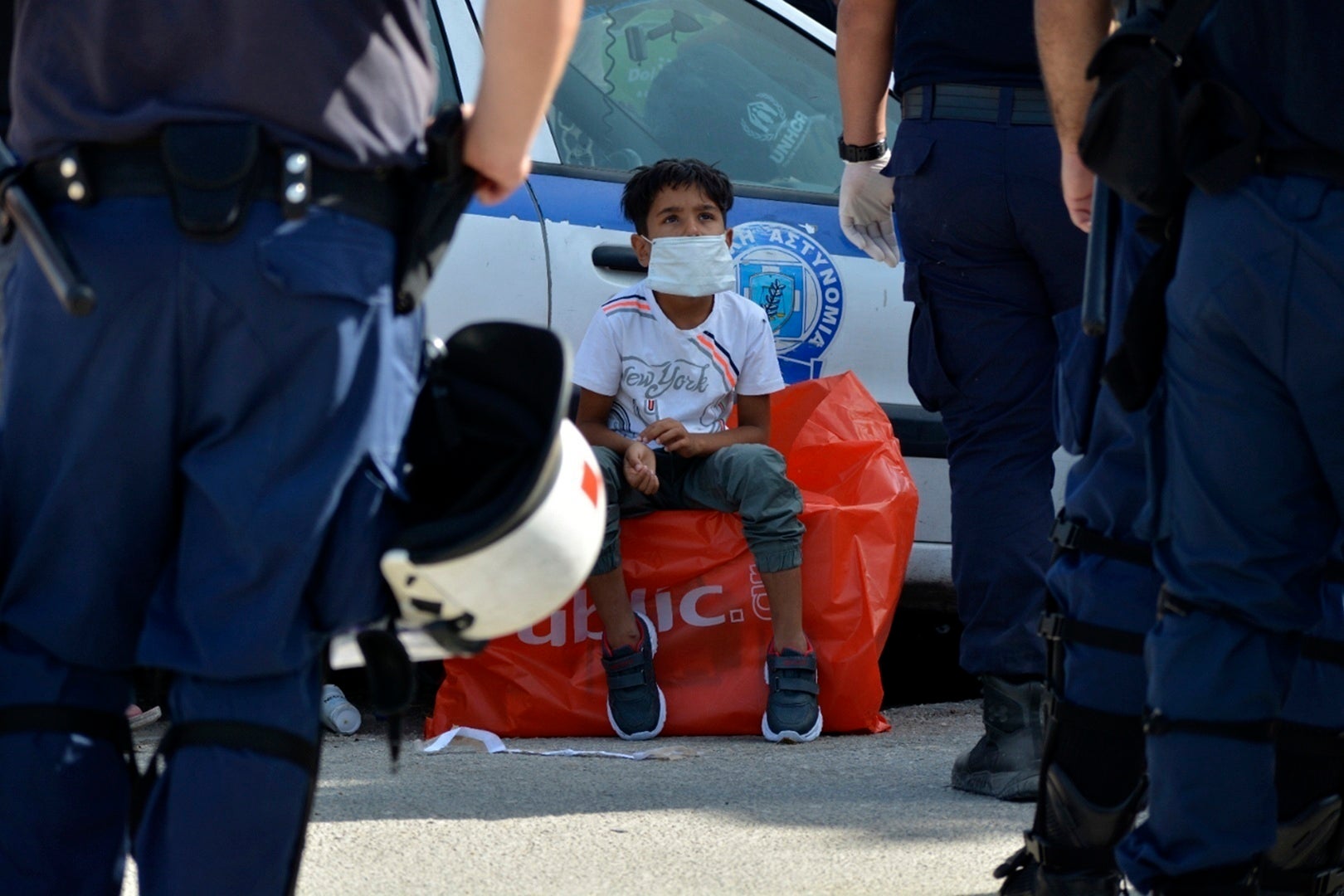Lawyers give EU agency notice over Greece migrant pushbacks
Human rights lawyers have formally accused the European Border and Coast Guard Agency of violating the rights of migrants to seek asylum, as well as other breaches of EU and international law

Your support helps us to tell the story
This election is still a dead heat, according to most polls. In a fight with such wafer-thin margins, we need reporters on the ground talking to the people Trump and Harris are courting. Your support allows us to keep sending journalists to the story.
The Independent is trusted by 27 million Americans from across the entire political spectrum every month. Unlike many other quality news outlets, we choose not to lock you out of our reporting and analysis with paywalls. But quality journalism must still be paid for.
Help us keep bring these critical stories to light. Your support makes all the difference.
Human rights lawyers have called on Frontex the European Border and Coast Guard Agency, to immediately stop its activities in the Aegean Sea and formally accused the agency of violating the rights of migrants to seek asylum, as well as other breaches of EU and international law.
The preliminary action filed by Front-Lex, a legal hub challenging EU migration policies, and Legal Center Lesvos, a non-profit organization providing legal assistance to migrants in Greece was sent Monday to Frontex Executive Director Fabrice Leggeri. He has two months to respond before the groups take the case to the European Court of Justice.
Frontex denies any wrongdoing, although Leggeri has faced growing pressure to step down from his position. Greece has also repeatedly denied it carries out illegal pushbacks of asylum-seekers.
In a 34-page document, the lawyers accuse Frontex of not only failing to report collective expulsions carried out by Greece at sea but also directly participating in Greece's illegal pushback of asylum-seekers trying to cross from Turkey by boat, violating “fundamental rights and international protection obligations,” and putting the migrants' lives at risk.
Pushbacks or collective expulsions are when groups of migrants are forcibly returned across a border without having the chance to seek asylum. They are considered contrary to the international refugee law principle of non-refoulement, which says people shouldn’t be expelled or returned to a country where their life and safety might be in danger due to their race, religion, nationality or being members of a social or political group. Pushbacks are also prohibited under EU human rights law.
The legal groups, in a statement citing Frontex's own regulations, said the executive director must grant their request and is obliged to withdraw “financing for any activity by the Agency, or suspend or terminate any activity by the Agency, in whole or in part, if he or she considers that there are violations of fundamental rights” that are "of a serious nature or are likely to persist.”
The preliminary action cites reports and evidence of collective expulsions revealed in an October joint investigation by media outlets Bellingcat, Lighthouse Reports, Der Spiegel, ARD and TV Asahi.
In one of the cases dated April 28-29, 2020 a group of refugees and migrants was returned to an unseaworthy life raft “without any means of propulsion and towed into the middle of the Mycale Strait,” as a surveillance plane watched from the sky.
In another incident dated June 8, 2020 video provided by the Turkish Coast Guard showed a Frontex vessel physically blocking a dinghy loaded with potential asylum-seekers.
In other incidents, Frontex vessels were in the vicinity, a couple of kilometers away from alleged pushbacks at the Turkey-Greece maritime borders.
“Legally speaking, if you and me are robbing a bank and you’re waiting outside in your car while I’m holding the bank, we are equally implicated in the crime,” Omer Shatz, the legal director of Front-Lex told The Associated Press.
The agency launched an internal inquiry last year following the joint media investigation.
“So far, we have found no evidence of Frontex participating in violations of human rights,” the agency spokesperson Chris Borowski told the AP
On Monday, Frontex announced it was adopting an updated fundamental rights strategy “to comply with the agency’s international and European obligations.”
The agency was supposed to have hired around 40 officers to monitor the way fundamental rights are respected during its operations, but as of last month it had failed to employ any. Portugal, which holds the EU’s rotating presidency, has said in recent weeks that it “will be very proactive in demanding that Frontex fully respects European law.”
Last month Frontex announced it was ceasing work in Hungary until the nationalist government there brings its laws into line with a ruling by the EU’s top court that the country is denying people entering without authorization the right to apply for asylum and unlawfully detaining them in “transit zones.”
___
Associated Press writer Lorne Cook in Brussels contributed to this report.
Follow all AP stories on refugees and migration developments at https://apnews.com/hub/migrants
Subscribe to Independent Premium to bookmark this article
Want to bookmark your favourite articles and stories to read or reference later? Start your Independent Premium subscription today.